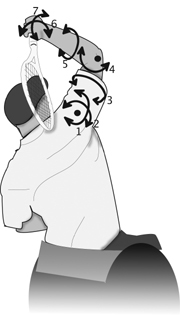The edges of my blog are curling and there are definite signs of foxing on the screen - it's been that long since I posted here. However, I have either been busy or not busy and miserable. In fact, the last few weeks go down as miserable with a big capital M.
Avid readers will know that I was doing a painting job for a friend of a friend. I don’t claim to be professional painter but do pride myself on doing a good job, to which at least one of my readers can testify. In my naivety, I had imagined that the individual concerned was financially strapped. (How wrong was I? While there I discovered that she was buying a second house so her son would have somewhere to stay when he went to university. I ask you! Halls of residence are obviously not good enough for the delicate child.) So, having estimated the job would take around two week, I was careful with my time and how I spent it.
About two-thirds the way through the work I received a call saying that she didn’t want me to continue. She gave some spurious reason or other. When I went around to collect my money, she said she wasn’t happy with my work, pointing out faults I was perfectly well aware of but had left. In terms of priority and saving time, hence money, I’d calculated it would be more efficient to do all the touching up at the same time.
I explained. She didn’t listen.
She gave me a cheque for the time I had completed when I had last given her an update on the hours spent. I had worked another day since. She refused to pay for it.
“We’ll agree to disagree,” she said in her best mangerspeak voice.
“We won’t,” I replied in my best barelycontainingmyanger voice.
“Well you can always pursue it, if that’s what you wish,” she continued, now using her best patronisingmanagerspeak voice.
“Pay me the money you owe me and I might be able to afford to do so,” I riposted in my sharpest aciddrenched voice. I was rapidly running out of voices, so left. Fuming.
A week later I receive a letter from my landlord’s agent saying, as I was behind with my rent, they would be taking
proceedings. Proceedings followed shortly in the form of registered mail, which I left lying around the Post Office Collection Point for a week in the hope it would be used by someone for his origami classes.
I collected it. It was exactly the same form as before, though this time from solicitors. It too warned of
proceedings.
This, I thought, is very unfair. I have been playing this game of catch-up with my agent, a lovely man, for years. Now he has taken my ball and won’t return it.
More proceedings. My agent is on my doorstep.
“Tell me, David, what is the position?”

I explain the position using diagrams backed up with a short PowerPoint presentation. Briefly, it explained that he had the ball and should now return it. (I had diagnosed the principles of tennis in my presentation as an analogy.) He wavered.
“I will e-mail you,” he said. I sensed the ball was in the air again.
He hasn’t e-mailed as of yet but I shall e-mail him for I have
news. (In this game, unlike tennis, it is always advisable to alert the other where you will be sending the ball. And despite the fact that I technically don’t have the ball at this moment, I can point out to him where it will be bouncing on his side of the net should he lob it back to me.)
My news equates to work. I had applied for a job and put down someone who had previously commissioned quite a lot of work from me as a reference. I phoned him to warn him. It was a vague gesture, as I knew he was now based in South Africa and I only had his UK mobile number.
Holy miracles of modern technology! He only phones me back the following day having noticed I had tried to call him.
“What are you up to?” he asks.
“Oh, this and that,” I replied nonchalant as a seal lazing on Nonchalant Beach.
“I was just thinking I might have a few days work for you.”
The nonchalant seal suddenly becomes a very eager beaver. The result is I have had more than a few days work and with more promised. Hats in the air time, followed by bouncing balls, I shouldn’t wonder.





